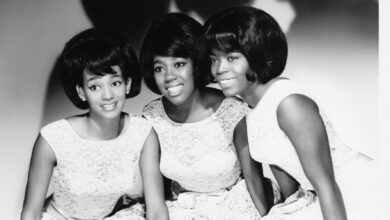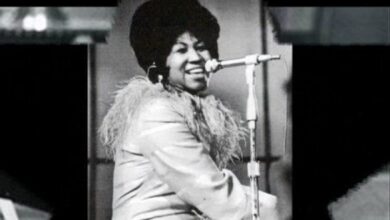Joni Mitchell’s “I’m Still Standing” Transforms Elton John’s Anthem into a Personal Triumph at the Gershwin Prize
On a spring evening in 2024, during the prestigious Gershwin Prize for Popular Song ceremony, Joni Mitchell took the stage and redefined what it means to endure. Performing Elton John’s high-energy anthem “I’m Still Standing,” Mitchell, at 80 years old, didn’t just deliver a cover—she delivered a powerful, emotionally charged interpretation that turned the familiar pop classic into a deeply personal declaration of resilience, survival, and artistry reborn.
Joni Mitchell’s journey to that moment had been long and winding. A musical pioneer whose early career began in the smoky clubs of Canada before exploding into global fame, Mitchell was known for her poetic songwriting, intricate guitar tunings, and genre-blending fearlessness. Her influence spanned folk, jazz, pop, and beyond. But more recently, her path was defined not by albums or accolades—but by recovery. After suffering a near-fatal brain aneurysm in 2015, Mitchell spent years relearning how to walk, talk, and eventually, sing again.
The idea to perform “I’m Still Standing” was born out of that experience. A song originally written by Elton John and Bernie Taupin as a defiant middle finger to adversity, it became something entirely different in Mitchell’s hands. With the blessing of Elton himself, Mitchell adjusted the lyrics slightly to match her voice and story—transforming the song into a meditation on survival, aging, and the quiet strength of returning to the stage after so many believed she never would.
Mitchell’s arrangement stripped away the song’s original pop gloss and replaced it with soft piano lines, acoustic textures, and a slightly jazz-inflected rhythm that reflected her signature style. Surrounded by a dream team of collaborators—including Brandi Carlile, Annie Lennox, Blake Mills, and longtime Elton John guitarist Davey Johnstone—Mitchell stood steady, her voice weathered but clear, each note carrying decades of lived experience.
The audience, filled with music industry icons and fans alike, sat in stunned silence as the performance unfolded. When the final notes faded, they rose in a thunderous standing ovation, Elton John among them, beaming with admiration. It was a moment heavy with symbolism: the original artist watching a fellow legend breathe new life into a song about standing tall, in every sense of the phrase.
This performance did more than honor Elton John and Bernie Taupin—it challenged the traditional expectations of what a tribute could be. Rather than mimicking the original energy of the song, Mitchell reinterpreted it entirely, proving that the best covers aren’t imitations, but revelations. She took a story that wasn’t hers and made it feel like it had always belonged to her.
For Mitchell, this was more than a performance. It was a statement that, even after decades in the spotlight and nearly a decade in recovery, she was still an artistic force to be reckoned with. Her return to high-profile performances has been gradual and carefully chosen. This one, however, may be the most powerful yet, as it captured not just her legacy, but her spirit.
Artists across genres took notice. Social media buzzed with praise from younger musicians who viewed Mitchell’s reinvention of the song as a masterclass in authenticity and interpretation. Critics hailed the performance as one of the most emotionally impactful moments in the award show’s history. In a landscape often dominated by spectacle, Mitchell had reminded the world of the power of stillness, storytelling, and sincerity.
In the months following the ceremony, Mitchell’s performance continued to circulate widely online, finding new audiences who may have known her only by name or through old records. Many were discovering her for the first time—not through the bright-eyed voice of her early folk days, but through the seasoned, resilient voice of a survivor. The performance offered both a bridge and an entry point: honoring her past while asserting her present.
Though she never sought to outshine the honorees, Mitchell’s rendition became the defining moment of the evening. Her version of “I’m Still Standing” shifted the meaning of the lyrics entirely—from bold defiance to quiet dignity. It proved that even songs soaked in bravado could be reshaped into something delicate, reflective, and profoundly human.
This performance is already being hailed as one of the most important musical moments of the year. It’s also likely to influence how future tributes are conceptualized—not as rote performances, but as opportunities for personal interpretation and artistic renewal. Mitchell has once again raised the bar for what it means to honor a song, an artist, and a legacy.
In a career filled with iconic performances, Joni Mitchell’s “I’m Still Standing” stands out not for its vocal perfection, but for its emotional weight. It wasn’t about hitting every note. It was about every note hitting you. And in that way, Mitchell didn’t just sing a song—she lived it. She reminded us that survival is not just about staying alive. It’s about standing tall, even when the world doesn’t expect you to.



